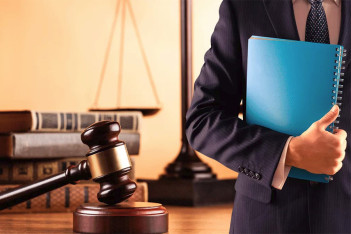Defense against unfounded accusations
Unfounded accusations can be a real test for anyone - from an ordinary citizen to the head of a large company. They damage reputations, create stressful situations, and in criminal cases threaten freedom. However, current legislation provides mechanisms that allow you to prove your innocence and achieve the closure of the proceedings or the refutation of the charges. This requires professional legal assistance with a clear strategy and a deep understanding of the nuances of the process.
Legal stages of protection against false accusations
Effective protection is built according to a clear algorithm of actions, each step of which takes into account the interests of the client and the specifics of his case:
- Primary legal audit and consultation: The lawyer examines all the circumstances of the case: studies interrogation protocols, decisions on suspicion, inspection materials (police, tax, labor inspectorate, etc.) and establishes the stage of the proceedings. Based on this, a preliminary defense strategy is formed and recommendations are given for priority actions.
- Search and record of procedural violations: The specialist carefully analyzes the procedure for collecting evidence: whether the rights of the client have been observed (information about rights, presence of a lawyer, legality of searches), checks whether inadmissible evidence has been used. The detected violations become the basis for filing complaints and motions to exclude them.
- Collection of alternative evidence and formation of counterarguments: To refute unfounded accusations, the specialist collects evidence proving the client's innocence: eyewitness testimonies, expert opinions, documents, video and audio recordings. It is important not only to expose the weaknesses of the accusation, but also to present your own strong arguments.
- Submission of motions and complaints to law enforcement agencies and the court: Recorded violations and new evidence are drawn up in the form of procedural documents: motions to close the proceedings, complaints about the investigator's inaction, applications to exclude inadmissible evidence. The lawyer monitors the terms of consideration and the reaction of the authorities.
- Participation in investigative actions and court hearings: The specialist participates in investigative experiments, interrogations, searches, and later - in court hearings. He protects the client from provocations, prevents illegal pressure and ensures that the process is carried out within the framework of the law.
- Final decision: After completing the collection of evidence and participating in all necessary measures, the specialist works to ensure that the investigator or the court makes a decision to close the case, acquit or return non-property rights.
The main goal of a lawyer is to ensure a fair trial and protect the client's rights from unfounded accusations. A skilled attorney uses all available legal means to achieve this.
Conditions for providing legal assistance in case of false accusations
Effective work of the lawyer is possible only when interacting with the client within clearly defined limits, such as:
- Providing complete and reliable information: The client undertakes to inform the lawyer about all the circumstances of the case, including inconvenient facts. Attorney-client privilege guarantees that no known fact will cause a breach of trust.
- Transfer of procedural documents and case materials: To analyze and prepare counterarguments, the lawyer must receive copies of the resolutions on suspicion, protocols of investigative actions, results of examinations, court decisions, complaints and decisions.
- Conclusion of a legal assistance agreement: Formalization of relations in the form of an agreement determines the scope of services, terms, cost, confidentiality procedure and responsibility of the parties.
- Prompt feedback: The client must be in touch to receive advice from the lawyer, clarify details, and promptly respond to procedural actions.
- Readiness to personally participate in investigative actions and meetings: In some cases, the effectiveness of the defense depends on the client's presence: during interrogation, investigative experiment or court hearings.
Fulfilling these conditions guarantees that legal support will be as prompt, professional and safe as possible for the client.
Advantages of contacting a lawyer in a case with unfounded accusations

Identification and elimination of procedural violations: The lawyer knows exactly where to look for shortcomings in the investigation and how to use them to the client's advantage.

Building a strong line of evidence: The specialist forms counterarguments using evidence proving innocence or the absence of grounds for accusation.

Reducing psychological stress: You receive a clear strategy, peace of mind and support at every stage, without worrying about the unknown nature of the procedure.
Frequently asked questions about protection from false accusations
Question
What is the procedure for admitting a lawyer to participate in a criminal case?
Answer
The procedure for admitting a lawyer to participate in a criminal case includes submitting a warrant or agreement on the provision of legal assistance and a certificate of the right to practice law. After that, the lawyer officially acquires the status of a defense attorney and can participate in all investigative actions.
Question
Is a lawyer needed in case of false accusation in a criminal case?
Answer
Yes, a lawyer is needed in case of false accusation. He will help collect evidence of innocence, protect the rights of the suspect, challenge the illegal actions of law enforcement officers and work to terminate the criminal prosecution.
Question
Is it possible to defend yourself from an unfounded accusation without the participation of a lawyer?
Answer
It is possible, but it is risky. Without a lawyer, it is difficult to correctly respond to investigative actions, file motions, exercise rights and effectively defend yourself. A lawyer increases the chances of a fair trial and protection from unfounded accusations.
What does the cost of legal defense against unfounded accusations depend on?
The price of defense against unfounded accusations is formed based on the complexity of the case, the volume of necessary procedural actions (analysis, collection of evidence, motions, participation in meetings), urgency (urgent involvement of a lawyer) and the need for additional examinations or consultations with specialists. The cost is discussed individually after reviewing the case materials.
ConclusionInnocent people often become victims of unfounded accusations, because law enforcement agencies sometimes incorrectly qualify events or work formally. Without professional legal support, you risk becoming a victim of unlawful actions and miscarriages of justice. A lawyer is a guarantor of the protection of rights, reputation and freedom, who defends interests before irreversible consequences arise. Do not delay - seek legal help as early as possible to minimize risks and maintain your peace of mind.




































